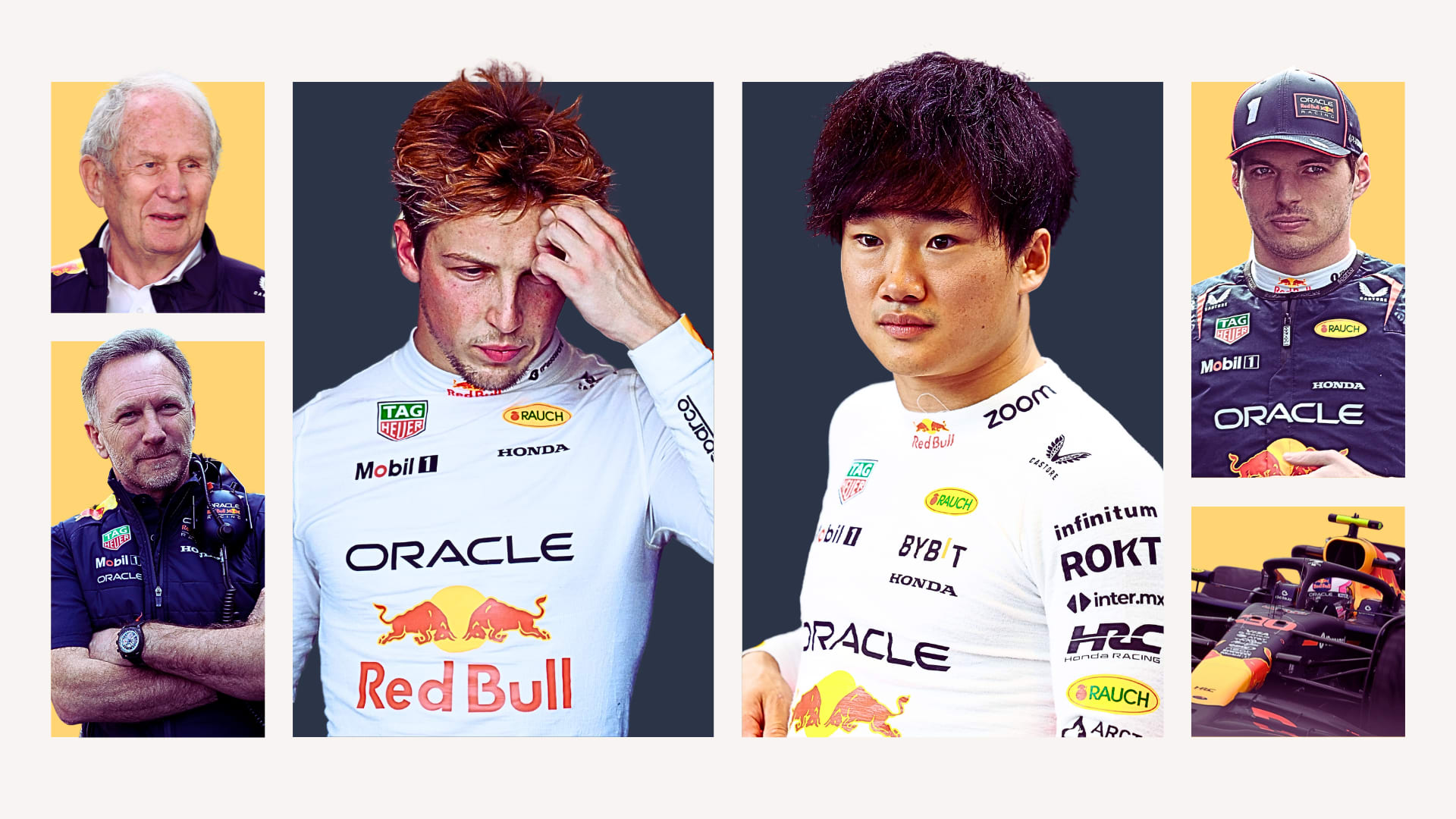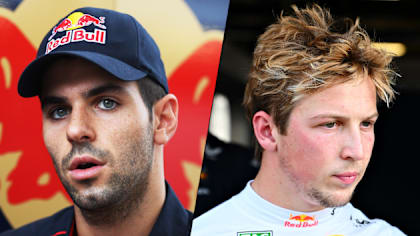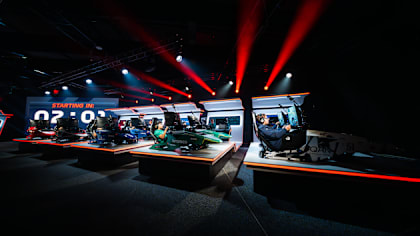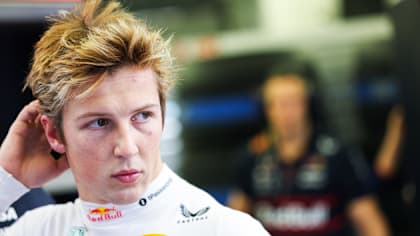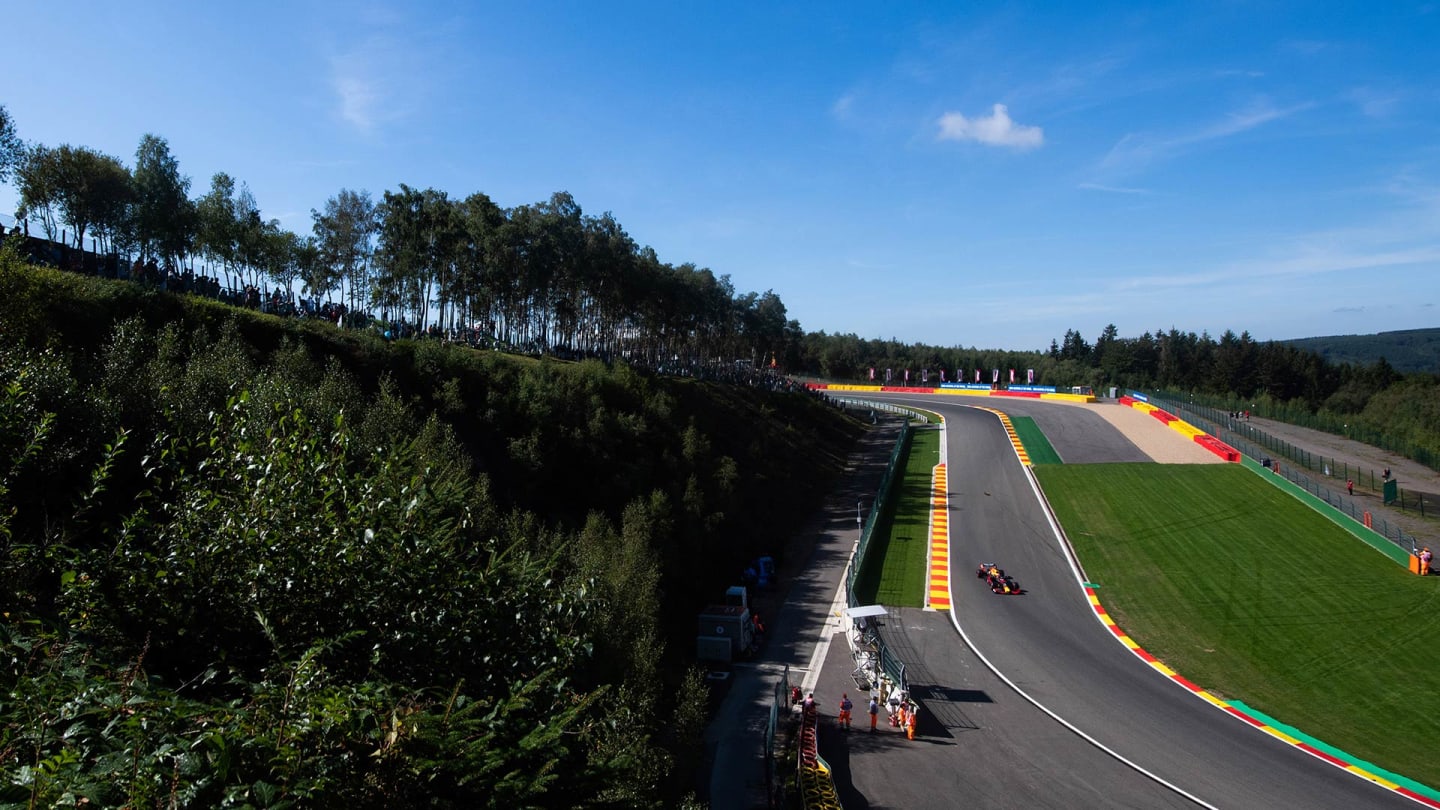
Feature
Trackside Performance Analysis: Navigating Spa's awkward Turns 8 and 9

Share

To understand the subtleties of car performance and driver technique, there’s no substitute for standing trackside and watching (and listening to) the protagonists at work. For FP1 in Belgium, Mark Hughes made the long walk to the downhill Rivage and Liege - Turns 8 and 9 - at Spa-Francorchamps - two of the circuit's most awkward and challenging corners
As the tarmac ribbon makes its way down the Ardennes valley, the corners of Rivage and Liege are awkward little punctuations between the flat-out blast of the cars. Awkward because they are steeply downhill and therefore understeer-inducing, awkward because Rivage has a bump half way across the width of the track right on the racing line, awkward because the two corners are close enough that a poor exit from Rivage compromises you for the downhill approach to Liege.
The first to really attack the corner on a low-fuel, red-tyre run is the Renault of Daniel Ricciardo who carries in an impressive amount of speed, the front of the car gripping well enough to allow him a significant degree of simultaneous braking and cornering. Carlos Sainz is doing the equivalent run at much the same time - and at this stage of the weekend, on this corner, the McLaren definitely lacks some of the front-end bite of the Renault. Lando Norris is getting around this with punchy inputs on both steering and throttle. On Nico Hulkenberg’s full attack lap, he locks up the fronts spectacularly after hitting the awkward bump.
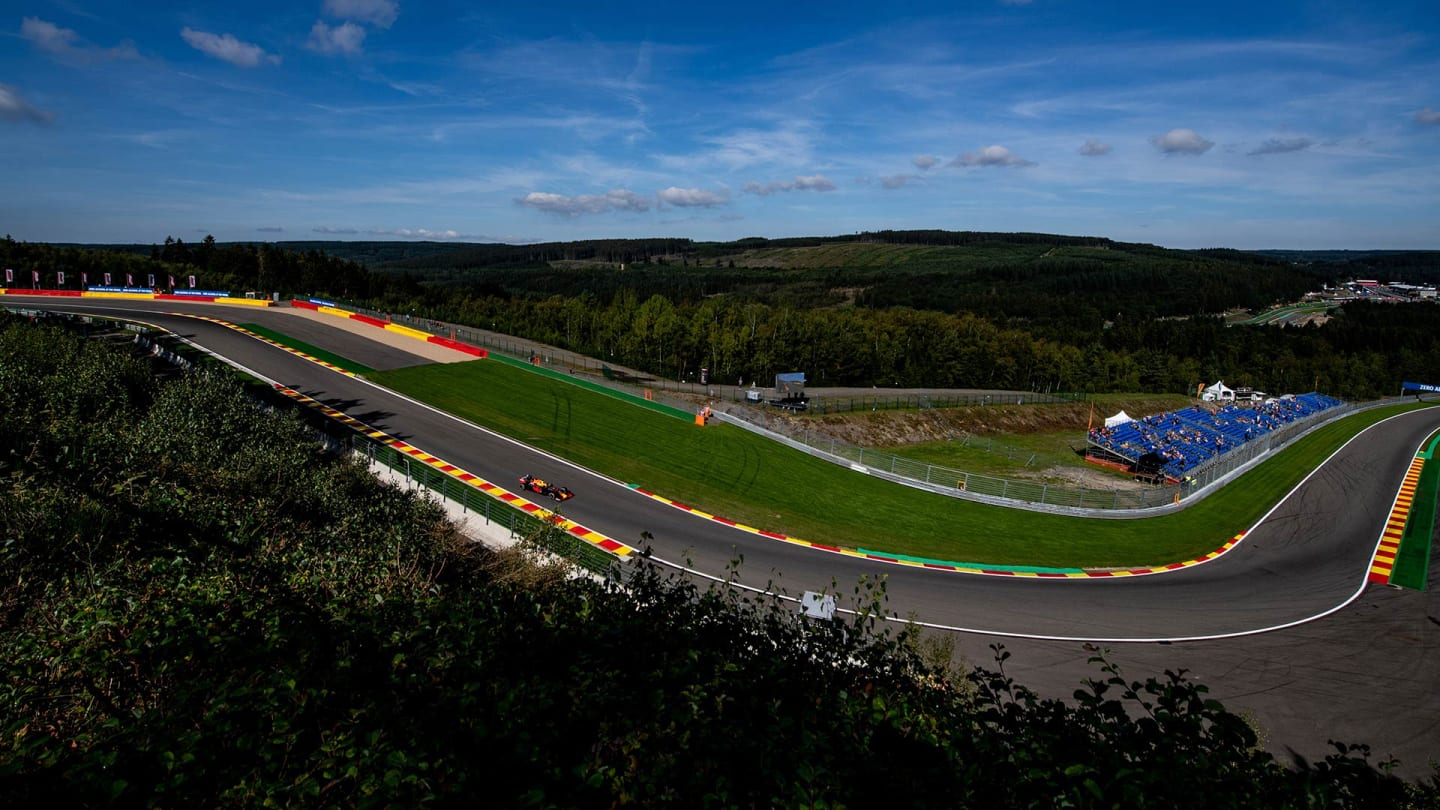
Verstappen places the car with purpose on the run down to Liege (Turn 9)
Sergio Perez is on it hard and early in the revised Racing Point and takes an aggressive entry speed into Rivage, but it doesn’t recover well from the mid-corner interruption of that bump, and understeers out wide on the exit, delaying his re-application of the gas. Being so late and far out onto the Rivage exit kerb means he’s not carrying as much speed as the others into Liege but he’s gamely wrestling its difficult balance.
Visually, the best car through this sequence is the Red Bull. Into Rivage Max Verstappen is outrageously late on the brakes and hard on the gas a fraction of a second later – at least two car-lengths earlier than Perez. In placing the car between Rivage and Liege he is deliberate and dominating, and it’s grippy enough to accept such harsh, uncompromising inputs. New boy Alex Albon is impressively quick too, albeit with a rather silkier style.
Mercedes at this stage are concentrating their running on the harder medium tyre and a direct Red Bull comparison therefore isn’t valid, but the car’s body language is more flowing, rounded off at the edges in how quickly it can be turned in. Valtteri Bottas’s progress through Liege is unobtrusive but using the car to the full, every bit of road neatly used up but without letting the car off a tight leash.
The Ferrari is an interesting one into Rivage because although its understeer is ever-present, it’s actually carrying a lot of speed into the turn. It is understeer but very high-grip understeer. Romain Grosjean’s Haas, for example, looks far better balanced here at the same time on the same tyre, but just cannot carry the same entry speed.
Just the opening salvos of what’s set to be a fascinating weekend of car comparison.
Belgium: Turn 8 to 10 Analysis
YOU MIGHT ALSO LIKE
News Alpine reserve Ryo Hirakawa to drive in FP1 at Japanese Grand Prix
News ‘He’s not become the worst driver in two races’ – Ex-Red Bull junior Alguersuari sympathises with Lawson after Racing Bulls demotion
Video LIVESTREAM: Catch the action from Qualifying for Round 11 of the 2025 F1 Sim Racing World Championship
News ‘It’s tough’ – Lawson shares first message after Red Bull seat swap with emotional social media post
